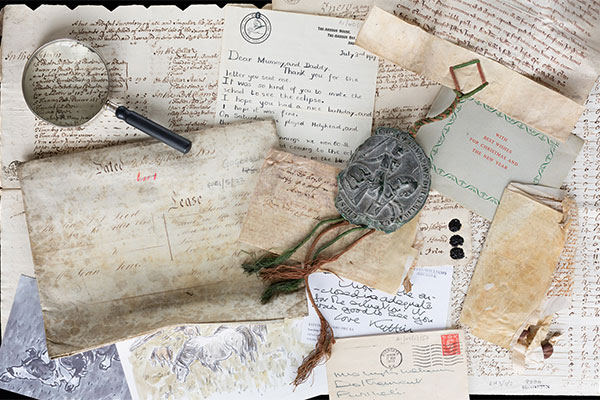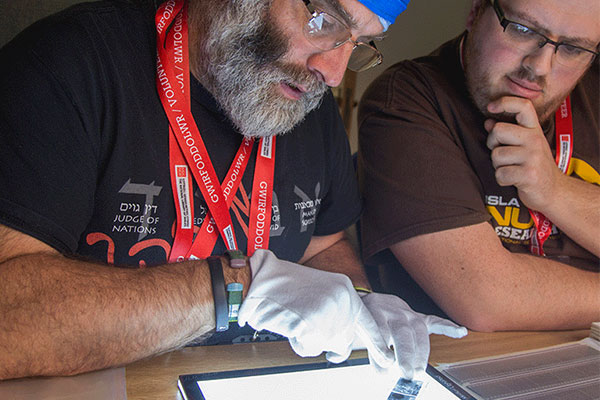This year staff from the NLW Archives and Manuscripts and Conservation teams made the annual archivist’s pilgrimage to the ARA (Archives & Records Association) UK & Ireland conference held this year in Birmingham on the 28th-30th August. The conference showcases and discusses the most prevalent issues facing archivists, records managers and conservators and provides a great opportunity to learn and share ideas.
This year’s theme was ‘Climate and Crisis: Tackling it Together’ and explored what we can do as archive professionals to not only help mitigate and reduce our effect on the environment but also how we can safeguard collections in the future against climate change and natural disasters.
Sustainable and ethical data management was also a prevalent topic and a lively and informative session on best practice for the management of social media data was held by NLW archivist Rob Phillips (Welsh Political Archive) and Rachel MacGregor (University of Warwick), and highlighted the need for sensitive archival treatment of data in a still relatively new and fast paced field.

Additionally, sessions explored topics centred on sustainability and limiting environmental impact in the day-to-day processes of collection, conservation, preservation and providing access, from sustainable materials used in conservation, to energy efficient storage and digital clean-up.
Finally, it was shown that valuable lessons can be learned from the archival records themselves, with an overall emphasis on the wealth of environmental history to be unlocked from historic collections. The discussion included varied archival collections of institutions such as the Royal Botanic Gardens Kew, the UCD National Folklore Collection, the National Meteorological Archive, Met Éireann, Historic Environment Scotland, and the British Geological Survey (among many others!). It was demonstrated how these collections can provide a connection with the environment and influence archival practice through scientific data, surveys, folk tales, language, and education, and most importantly, how the archives of the future can learn lessons from the records of the past.
Category: Article





